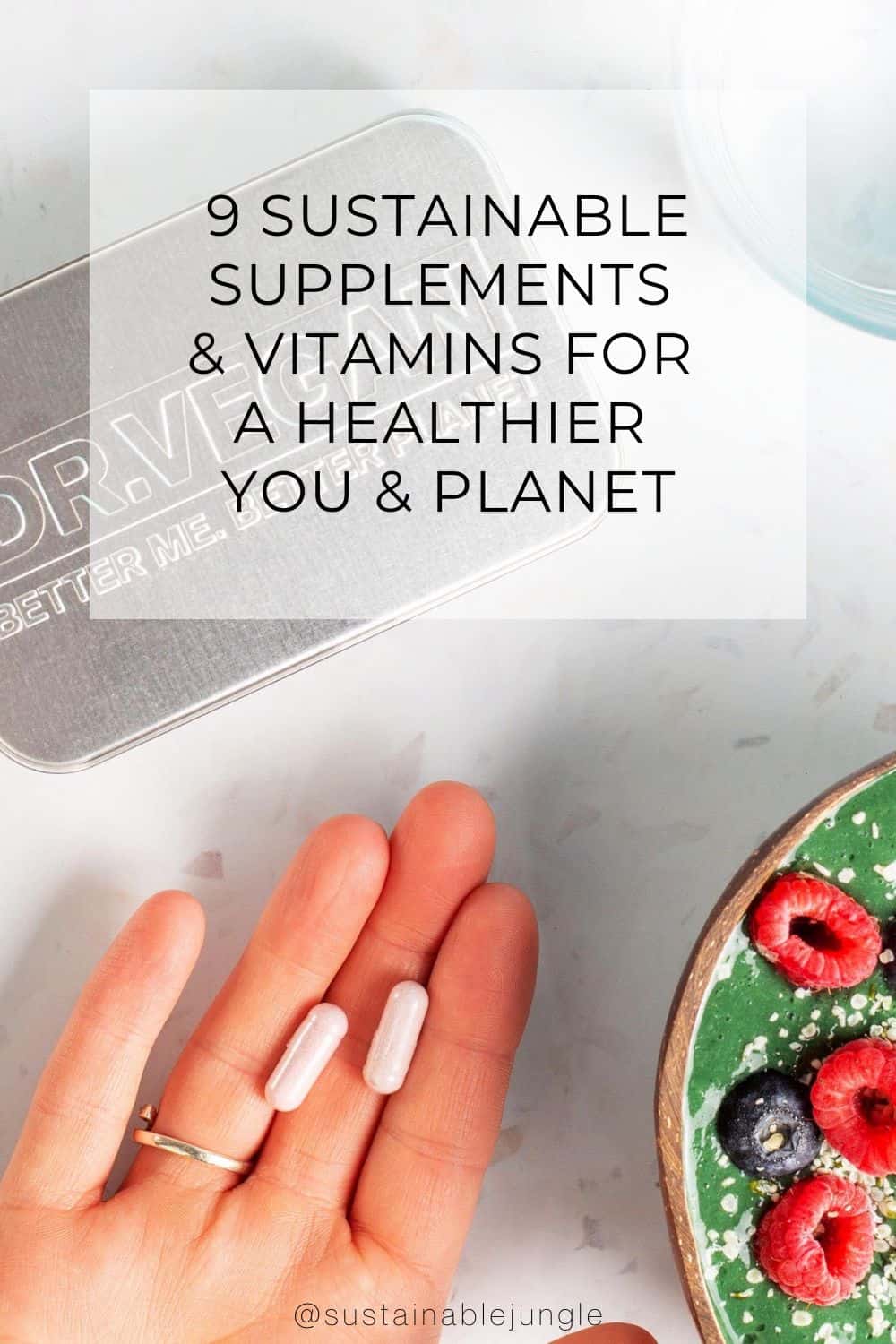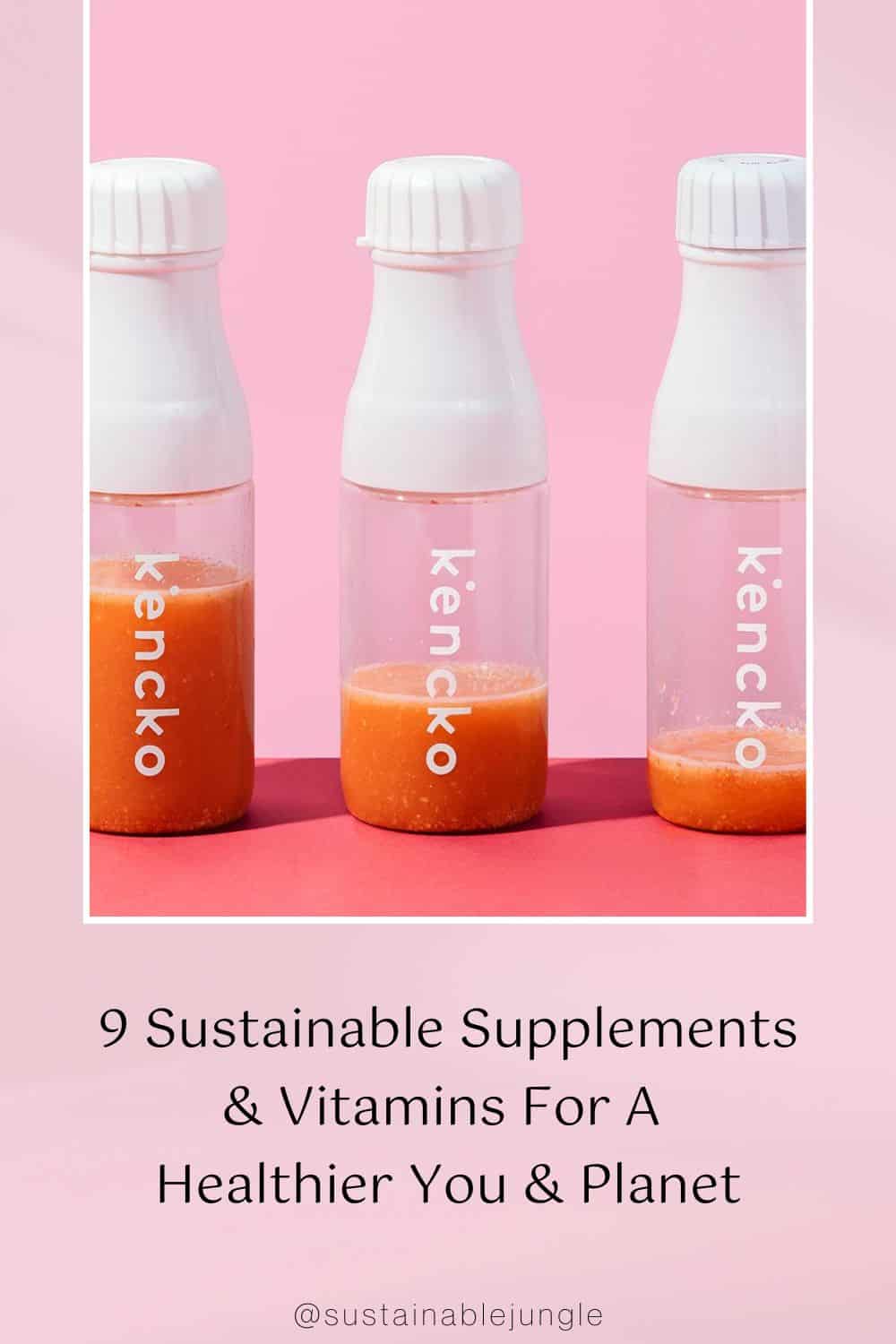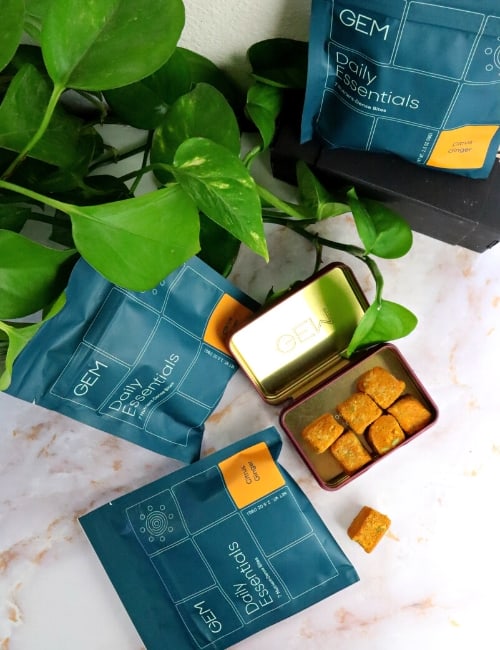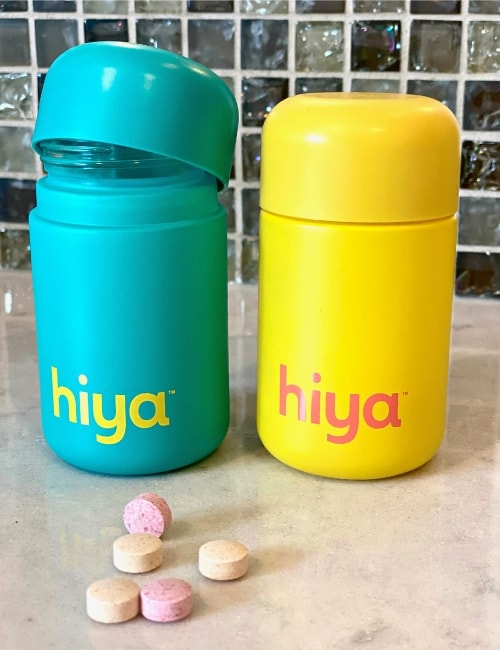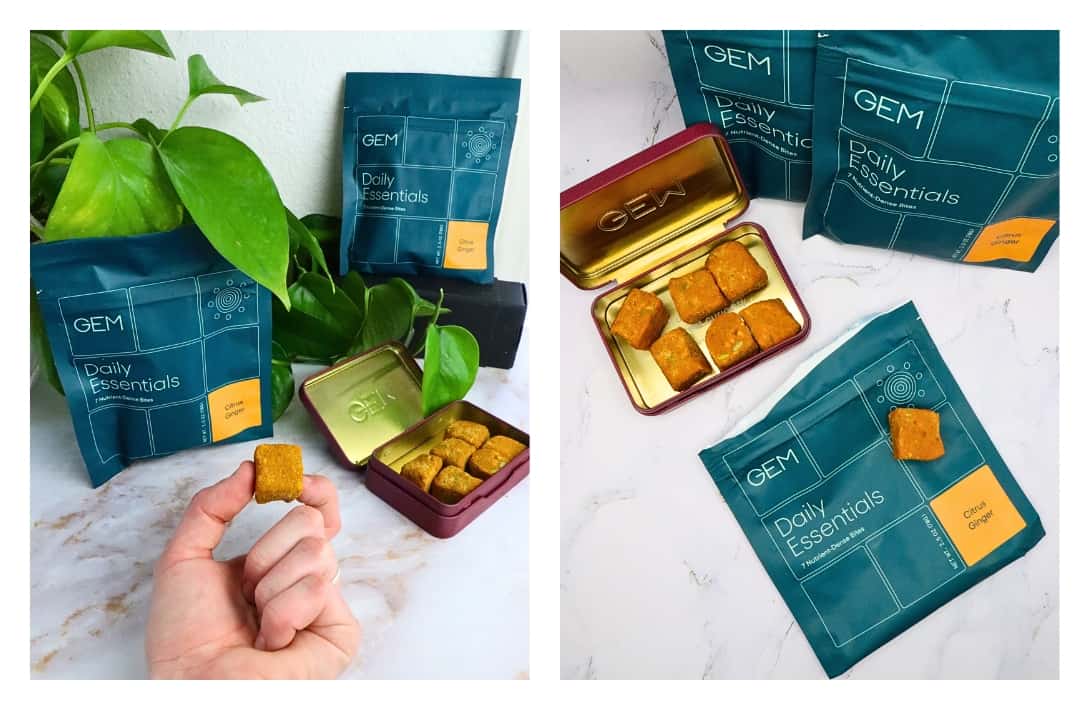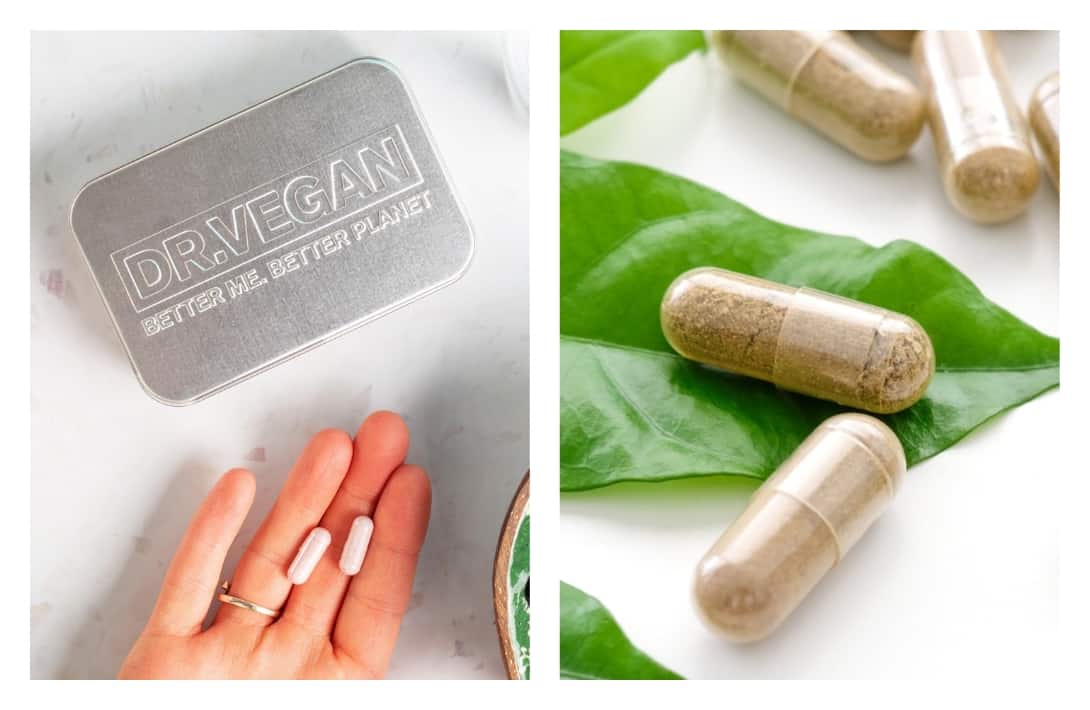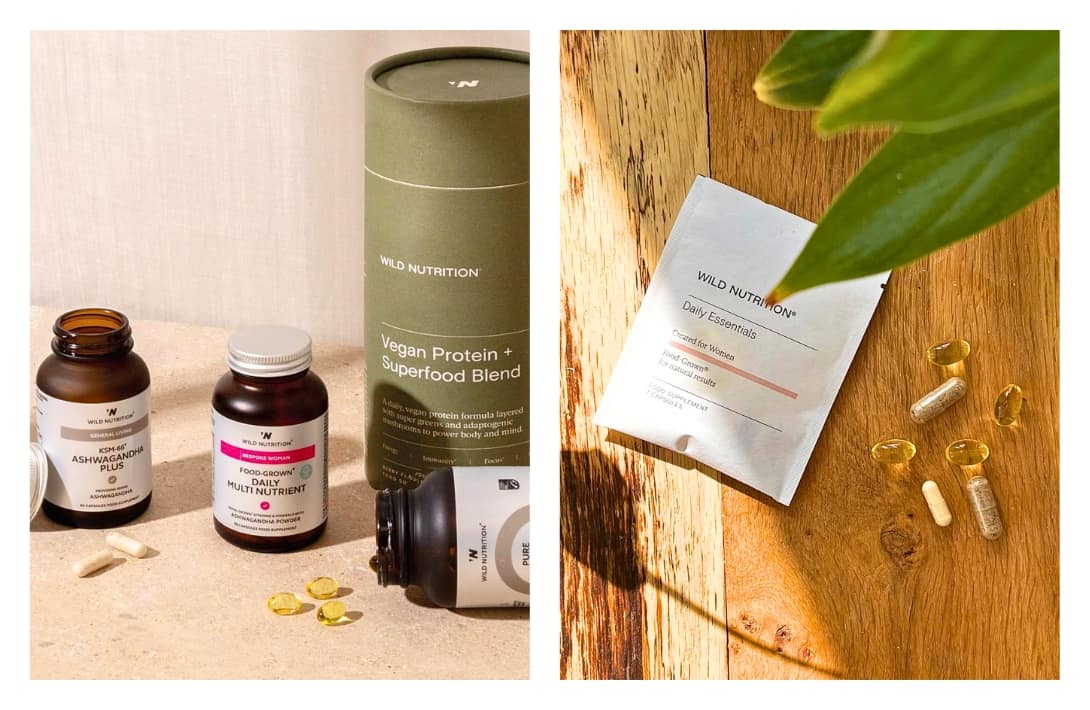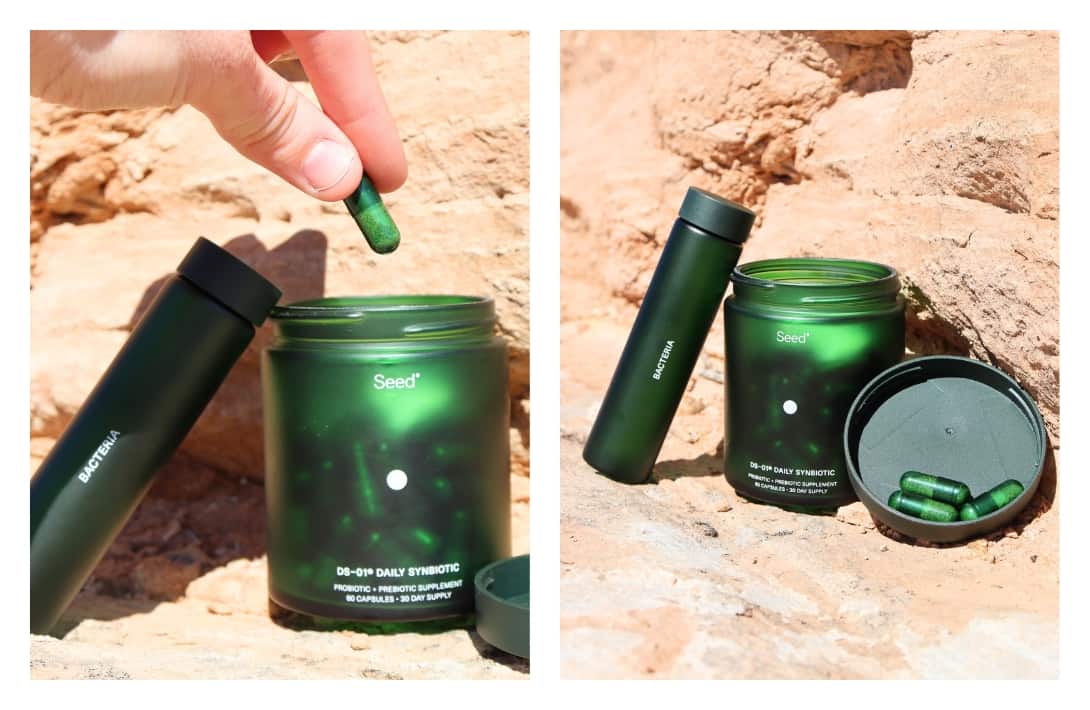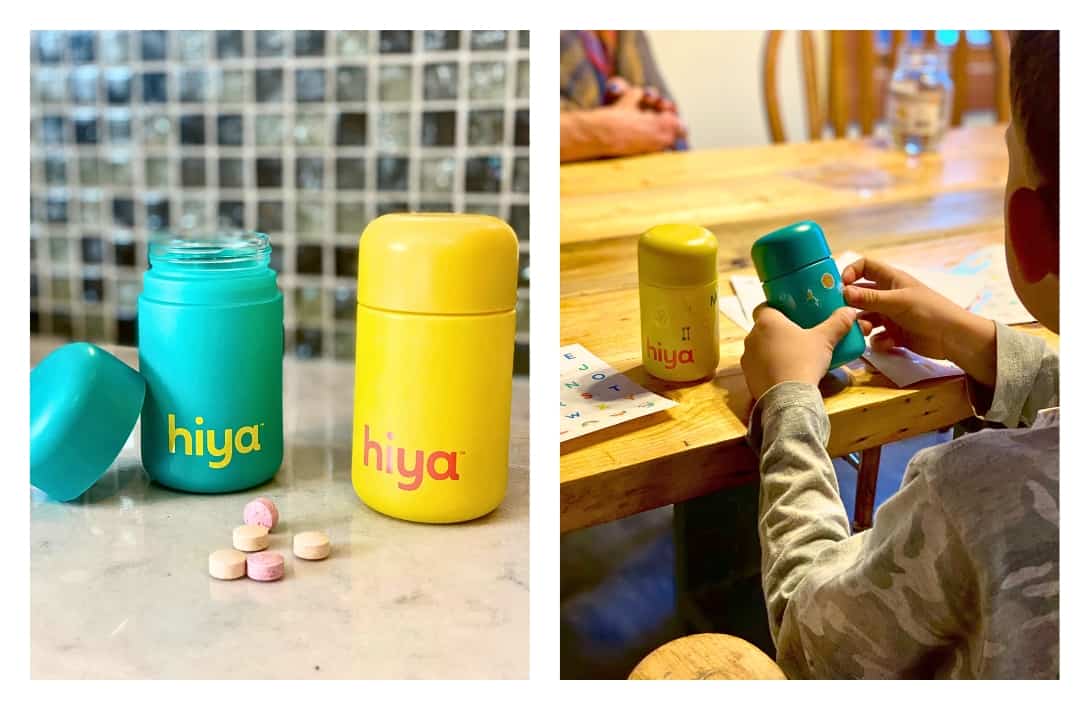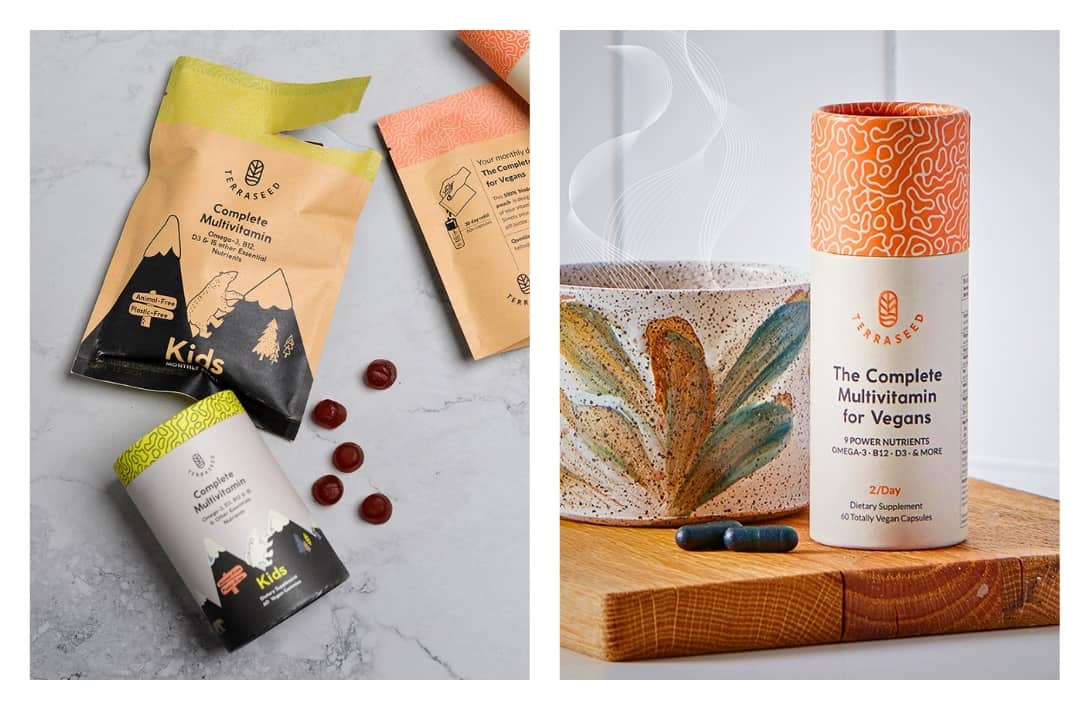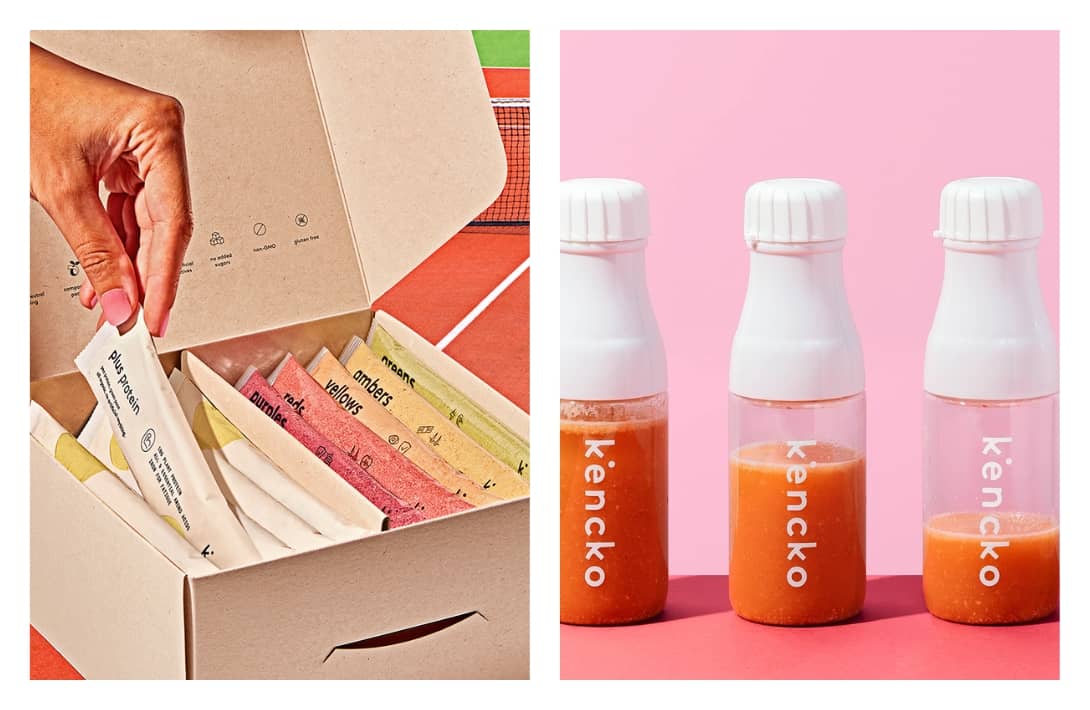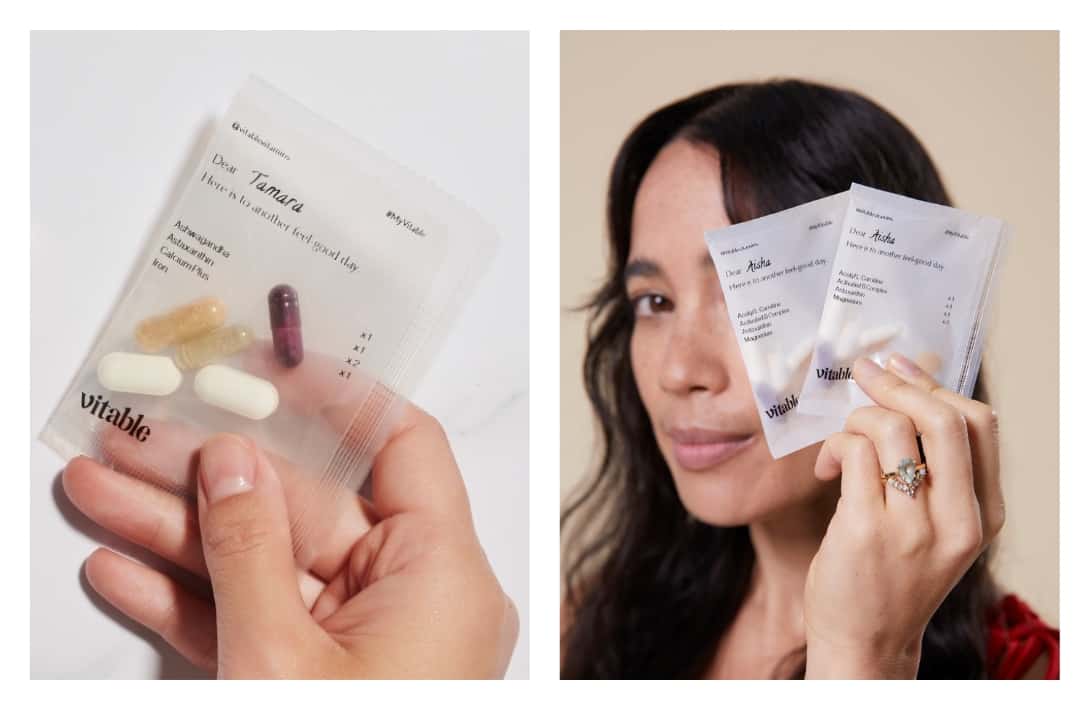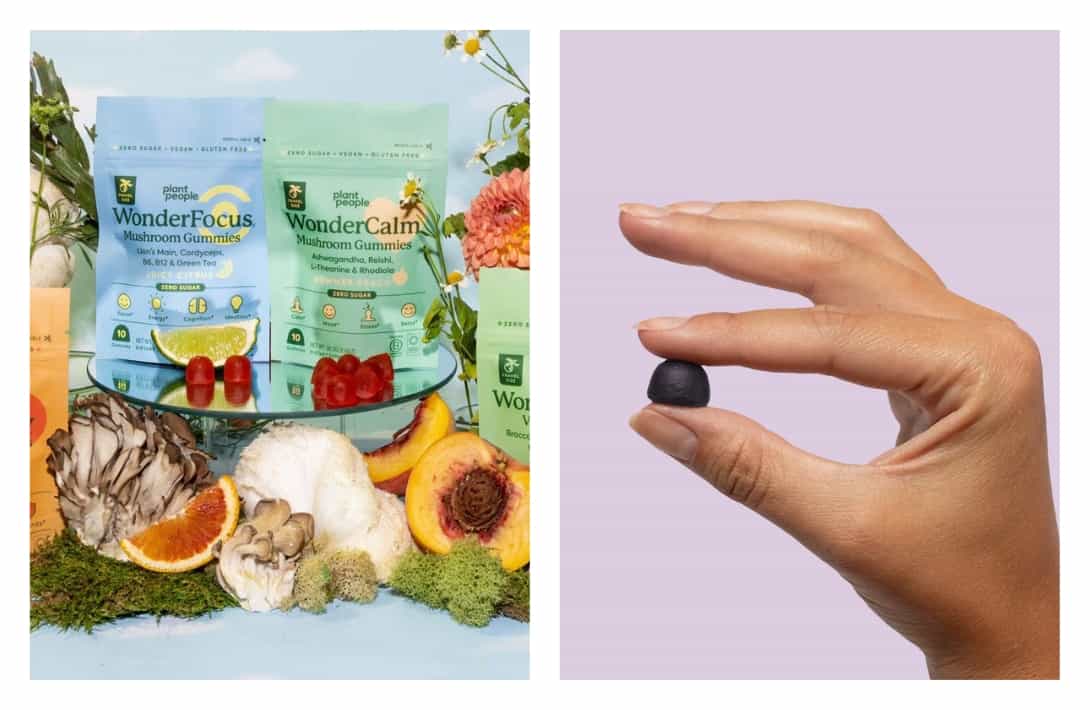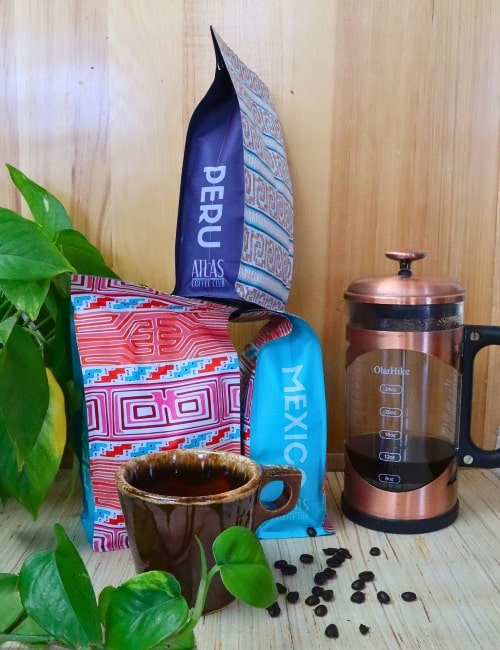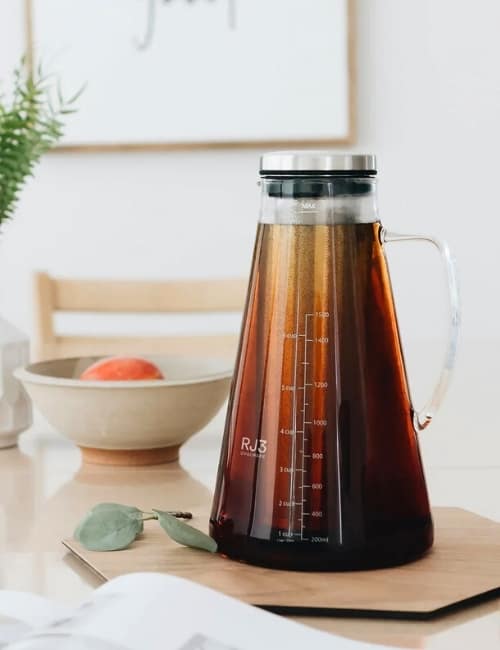9 Sustainable Supplements & Vitamins For A Healthier You & Planet
Why should you opt for sustainable supplements over standard off-the-shelf options?
Because the planet could also use an immune boost.
Among Americans, 80% use vitamins and supplements, a percentage that’s increasing right alongside the amount of plastic packaging and unsustainable filler ingredients.
Fortunately, sustainable packaging for supplements and high-quality ingredients is becoming increasingly available thanks to these low or zero waste vitamin brands.
Everything we recommend to you on Sustainable Jungle is independently researched and we ask all brands to confirm their claims. To avoid waste, we test products on an as needed basis. This post contains affiliate links. If you buy something through our links, we may earn a small commission. Learn more about why we do this here.
The Top Sustainable Vitamins For Green Gains
Dr. Vegan makes it easy to fill any nutrition gaps with their expansive inventory of allergen-friendly, additive-free, non-GMO, and naturally sourced supplements.
After eight weeks, 75% of customers reported more energy from GEM’s daily whole-food vitamins made with organic and non-GMO ingredients—us included!
Hiya’s sustainable children’s multivitamin contains 15 essential vitamins and minerals without any fillers, sugars, or junk.
Crack open the seal and pop down to the end of the article to see what a–pill-ed to us when seeking sustainable supplement manufacturers.
The Full List Of Sustainable & Zero Waste Vitamin Brands
- GEM | Visit Store
- Dr. Vegan | Visit Store
- Wild Nutrition | Visit Store
- Seed | Visit Store
- Hiya | Visit Store
- Terraseed | Visit Store
- kencko | Visit Store
- Vitable | Visit Store
- Plant People | Visit Store
1. GEM
GEM’s Zero Waste Supplements USA
Price Range: $55
The multi(bite)amins from GEM keep dietary supplementation simple in the form of real food bites.
Their Daily Essentials and Deep Sleep products are designed to target one’s specific health needs. They incorporate a biodiverse group of whole foods to address the multifaceted nature of our bodies.
Each chewable bite contains 20+ whole-food sourced vitamins, minerals, probiotics, and superfoods—all made from real food synergistically designed to work with one another to increase absorption and utilization.
One of the main ingredients is algae, a significant source of nourishment for both humans and the planet.
Other ingredients include chickpeas, turmeric, ashwagandha, stone fruit, citrus, beta-glucan, and spices.
We’ve personally tried out their Daily Essentials chews and love not only the soft, easily chewable texture, but the subtle ginger flavor, which also great digestive benefits and helps our bowels feel more regular, too.
The turmeric is tasteless (a pro to many!) but adds a nice anti-inflammatory benefit that also makes them ideal for older folks or those with joint pain.
If swallowing big pills is not your favorite part of your morning routine, you’ll love these. While we find the gelatin used in traditional supplement capsules sometimes upsets our stomach, we’ve never had any nausea after taking this with breakfast.
About GEM
GEM is a woman-founded brand with a Scientific Advisory Board that includes members from functional, holistic, and integrative medicine.
Organic, non-GMO ingredients are purchased from sustainable farms whenever possible.
These don’t include animal products, soy, synthetic ingredients, and gluten.
Their eco-friendly vitamin packaging consists of reusable tin jars or a smaller travel tin, with refills mailed in a compostable pouch that will break down in as little as 12 weeks, but not in your home composter, so save them up and compost industrially.
Mailers and shipping boxes are partially or 100% recycled and recyclable.
2. Dr. Vegan
Dr. Vegan’s Plastic-Free Vitamins UK
Price Range: $15–$60
Dr. Vegan allows you to create your diet profile to find the best vegan zero waste supplements for you and your lifestyle.
“Better Me. Better Planet.” is their motto.
Different formulations are available: Energy, Stress & Sleep, Hair, Skin, & Nails, Bones & Muscles, Brain & Memory, Women’s Health, Immunity, Heart, Digestion, Eyes, and Liver.
You can also choose between individual vitamins and minerals or a bundle.
The certified kosher and non-GMO ingredients are naturally sourced and plant-based. Each formula is free of allergens, lactose, sugar, starch, gluten, and other additives.
About Dr. Vegan
Dr. Vegan’s plastic-free vegan vitamins are made in the UK using ethically sourced ingredients. The outer packaging is compostable and recyclable.
The Vitamin Tin (free with the first order) holds 84 capsules and can be refillable with 100% plastic-free and compostable refills.
Dr. Vegan also provides an easy way for customers to address nutrition gaps with their Diet Profile Quiz.
3. Wild Nutrition
Wild Nutrition’s Plastic-Free Supplements UK
Price Range: $20–$120
Wild Nutrition offers food-grown refillable vitamins for women, men, kids, and teens.
You can shop by health goal—cleanse, endometriosis, or fertility, to name a few—or take a 60-second quiz to get tailored recommendations.
Their vast range includes vitamins, herbs, and complexes from menopause to bone health.
Wild Nutrition makes its food-grown supplements with only natural, sustainably sourced ingredients, many of which are organic, locally sourced, or MSC-certified.
As a no-filler vitamin brand, they are free of unnecessary fillers, binding agents, preservatives, colorants, and aggressive doses of isolated, synthetic ingredients.
While they have a range of vegan supplements, not every product suits those on a vegan diet, but they do not test on animals.
About Wild Nutrition
Wild Nutrition is committed to supporting diversity and inclusion and is proud to be an equal opportunity employer and a certified Great Place To Work®.
The woman-founded and operated brand is also a Certified B Corp.
While initial orders are sent in reusable, recyclable glass jars, refill pouches are also available for most. These are fully biodegradable and certified plastic-free.
They regularly support organizations like Ocean Generation and One Tree Planted while supporting their local community with care packages and more.
4. Seed
Seed’s Supplements Without Fillers
Price Range: $50
If you don’t have time to brew and flavor kombucha, Seed makes getting your daily dose of probiotics simple.
Collaborating with leading scientists, they offer research-backed, plastic-free probiotics for whole-body health.
DS-01™Daily Synbiotic is a 2-in-1 24-strain probiotic + prebiotic capsule designed to support digestive health, immune function, gut barrier integrity, micronutrient synthesis, cardiovascular health, and dermatological health.
Their specially engineered ViaCap® double capsule design protects bacterial strains inside from oxygen, moisture, and stomach acid once consumed, ensuring maximum efficacy.
Validated by 10 clinical trials and 14 pre-clinical trials, DS-01® is considered the gold standard, with demonstrated results of healthier skin—including reduced visible signs of aging and a balanced skin microbiome—as well as reduced damaged from effects of alcohol and antibiotics.
Tested for over 50 quality assurance checkpoints and 500 unique pesticides (including glyphosate), the plant-based formula is suitable for anyone on a low FODMAP diet.
They’re also are rigorously tested as free from 14 classes of allergens and additives, including sugars, soy, gluten, dairy, nuts, and sesame.
We’ve personally been using DS-01® for about two weeks now. Already, we experience noticably less post-breakfast bloating and mid-day energy dips.
While it’s too early to speak to its anti-aging effect, our skin does appear to be a little brighter and more plump. We’ll update with any further developments as we continue to take these daily.
The PDS™-08 Pediatric Daily Synbiotic is a clinically studied 2-in-1 powdered synbiotic formulated for kids and teens with nine probiotic strains easily milked into mulk, yogurt, or juice.
About Seed
Seed utilizes a Sustainable Refill System, meaning all packaging is designed to be gentler on the Earth.
DS-01™ vitamins come in glass bottles, and PDS-08™ comes in an Aluminum BacTrac™ container.
Both are ready for monthly refills and can be recycled or repurposed. Monthly refills arrive in a home compostable-safe biofilm pouch, and an FSC-certified, recyclable algae paper box made using 100% renewable energy.
Prioritizing planetary health as well, SeedLabs uses bacteria to increase biodiversity and recover ecosystems impacted by human activity.
Current projects support honey bees, corals, and regenerative farms.
5. Hiya
Hiya’s Sustainable Dietary Supplements
Price Range: $23–$60
If you’re a health-minded parent like us, you’ve tried different vitamins, gummies, hidden spinach in smoothies, to no avail. The added sugar, gummy texture (hello cavities!), and poor results of other kids vitamins had our family off vitamins for months.
Then we got to say ‘hiya’ to Hiya’s children’s vitamins without fillers or additives.
Instead of sugar-filled, gelatin-based gummies, Hiya produces a great-tasting daily chewable.
Their Kids Daily Multivitamin contains 15 essential vitamins and minerals to support your child’s immune system, growth, and development. Instead of sugar, Hiya uses monk fruit extract and a blend of fruits and vegetables.
The chewable is also diet-inclusive, as it’s vegan, gluten-free, non-GMO, and dairy-free.
Hiya also carries a Kids Daily Probiotic and a Kids Bedtime Essentials.
We got the opportunity to try both the Hiya Health Probiotic and Multivitamin.
First things first, the reusable jars are sturdy and long lasting. The bags for refills are recyclable and keep everything tidy during shipping. We opened them up to excited squeals when pages of stickers fell out to decorate each bottle with their name and special stickers.
Made with monk fruit extract, these vitamins don’t lead to a sugar spike and we’re asked every morning for their “bitamins & biotics”.
Finally a vitamin we feel good about feeding our family!
About Hiya
Founded by two new dads, Adam Gillman and Darren Litt were shocked to find out that traditional children’s vitamins are loaded with sugar, artificial ingredients, and additives.
The daddy-duo set out to join the ranks of vitamin brands without fillers—but for kids—and Hiya Health was born.
Their vitamins are manufactured in the United States in cGMP-compliant manufacturing facilities. Third-party labs test each product for safety, allergens, pathogens, and heavy metals.
Everything is shipped in sustainable packaging for vitamins, like reusable glass bottles with customizable stickers.
6. Terraseed
Terraseed’s Vitamins In Plastic-Free Packaging
Price Range: $35
Instead of compostable sachets and refillable forever bottles, Terraseed uses fully biodegradable bottles for their zero waste vegan vitamins.
Their Complete Multivitamin for Vegans is a no-brainer to empower plant-based diets, curbing any nutritional deficiencies.
The vitamin bolsters immunity, supports skin and hair health, and boosts energy. It’s designed to fill in dietary gaps, and is gluten-free, non-GMO, and filled with nine bioavailable ingredients.
About Terraseed
The ingredients are ethically sourced, including sustainably harvested lichen and algae.
Terraseed’s plastic-free bottle is made from compostable vegetable cellulose. All other packaging is biodegradable, and the shipping envelope is printed with algae ink.
The women-founded brand wants to support anyone interested in their health and in veganism. They encourage anyone who can’t afford Terraseed to reach out and they’ll help make it work.
7. kencko
kencko’s Eco-Friendly Vitamins
Price Range: $3–$10
Who doesn’t love a fresh morning smoothie—but who has the time to prepare one every morning?
kencko makes it easy with instant, organic, 100% fruit and veggie smoothies. Their organic vitamin packs contain 2.5 servings of freeze-dried organic fruits and veggies.
kencko offers numerous flavors with ingredients like spinach, kiwi, strawberry, blue spirulina, and more.
The brand uses sustainable packaging for supplements in the form of compostable materials.
You can also incorporate kencko’s reusable shaker cup—a dishwasher-safe, BPA-free, and clump-eliminating bottle.
About kencko
Founder Tomás found the inspiration for kencko after experiencing ongoing stomach issues.
After some research, he swapped to a plant-based diet and started crafting freeze-dried smoothies.
His friends caught word and wanted to try them, and this now Certified B Corp was born.
Their plastic-free vitamin smoothies don’t contain any refined sugars or artificial additives.
Everything is EU or USDA Organic certified and shipped via carbon-neutral shipping.
8. Vitable
Vitable’s Plastic-Free Vitamins Australia
Price Range: $9–$35
Delivering personalized supplements sachets directly to your doorstep, Australia-based Vitable takes the guesswork out of good health.
You can take a quiz to assess your lifestyle, diet, and goals to create a custom-curated pack of 30 sachets delivered monthly.
Alternatively, you can create a subscription for products you’d like to take. These include vitamins, minerals, herbs, probiotics, and specialty products, like zero waste prenatal vitamins.
Vitable’s ingredients are science-backed, suitable for most allergies and diets, and free of gluten, lactose, and GMOs.
They’re high-quality and easy for the body to digest and absorb.
Most supplements are vegetarian or vegan-friendly.
About Vitable
Vitable’s is a non-synthetic vitamin brand using ingredients sourced from ethical suppliers around the world where the ingredients are native.
For instance, the curcumin is from India, whereas the fish oil is sustainably sourced in Norway.
Products are made in an Australian factory, meeting the highest quality and safety standards, per the Therapeutic Good Administration.
Vitable reduces transportation emissions by cutting out middlemen.
They offer the Vitable’s Refillable Dispenser, a reusable plastic-free tin that stores the sachets made from home-compostable plant-based cellulose.
Monthly refills are sent in a recyclable FSC-certified cardboard mailer, but their supplement powders are not zero waste and come in plastic.
9. Plant People
Price Range: $10–$100
Plant People’s Vitamins in Glass Bottles
Whether you need support for cognition, immunity, stress, recovery, skin, or sleep, Plant People has zero waste supplement gummies and supplements.
They’re all for the fungi, harnessing the natural powers of non-psychedelic adaptogenic mushrooms.
They’re most well-known for their WonderDay Mushroom Gummies, which contain functional mushrooms like Chaga, Reishi, and Lion’s Mane—which, by the way, is our favorite functional mushroom for its ability to improve cognitive function and focus, and reduce brain fog.
The regenerative plant and mushroom supplements are doctor-formulated, free of sugar, gluten, GMOs, heavy metals, and contaminants, and they are vegan and cruelty-free.
About Plant People
As a Certified B Corp, Plant People uses ingredients that are organic, grown using regenerative agriculture, or support biodiversity-friendly farming practices.
While most of their products come in a reusable/recyclable glass jar, some supplements contain a bit of plastic.
Plant People uses plastic-free, 100% recycled, and biodegradable/recyclable shipping materials free of dyes.
They’re Certified Carbon Neutral, and, for every product sold, they plant a tree with American Forests and Trees for the Future.
Did you know we Have a Newsletter?
We cover the latest in sustainable living, fashion, zero waste, beauty, travel, finance and more…
Why Choose Plastic-Free Vitamins & Supplements?
Why should we care that our B12 supplements are packaged sustainably?
Unlike most consumers, the supplement and vitamins industry has yet to be swept up in a green wave en masse.
It’s a tough pill to swallow, but the number of brands using eco-friendly supplement packaging in the US is currently in the “low double digits”.
For products intended to improve our health, the excessive difficult-to-recycle packaging—droppers, dosage cups, cotton balls, labels, outer boxes, desiccants, tamper-evident seals, and more—doesn’t give the same courtesy to our planet.
And a healthy planet is the best thing we can do for our own health, both in the short and long-term.
It’s not just about the packaging, either.
It’s down the hatch in a matter of seconds, but do you know how that vitamin C was produced or where your omega-3 fatty acids are coming from?
Between links to overfishing and significant carbon emissions, supplement makers have a public image that isn’t exactly eco-friendly.
In some cases, forests are cut down to cultivate health-boosting plants.
In others, artificial fertilizers and pesticides are used excessively, exposing under-compensated farmworkers to harmful chemicals.
And while the gelatin capsules that keep it all contained in a neat little pill may be made of plant-based materials, gelatin is often animal-derived and companies often don’t disclose which one they use.
How We Found The Best Zero Waste Vitamins & Supplements
What does it mean to offer sustainable supplements?
There’s a lot to swallow on the matter, so let’s bite into what we look for in sustainable food brands.
Ingredients:
The American Herbal Products Association (AHPA) joined forces with Quality Assurance International (QAI) and the Organic Trade Association (OTA) to establish a protocol for organic supplements.
Like other food products, dietary vitamins and supplements containing agricultural products can be labeled organic.
However, certain conditions must be met:
- If products contain only organic ingredients that are all certified, the product can be labeled as “100% Organic.”
- If at least 95% of the ingredients are certified organic, the vitamin or supplement can be labeled “Organic.”
- With at least 70% organic ingredients, vitamins and supplements can have the statement “Made with Organic [specified ingredients or food groups]” on the packaging.
These products should also bear the USDA Organic seal or one from a USDA-accredited certifying agency or an equivalent overseas ones, which we list below.
If you see “organic” on the label without any of these certifiers to back it up, there’s a good chance the brand is trying to force some greenwashing down your gullet.
If they aren’t using certified organic ingredients, they should at least be using ingredients that are non-GMO and sourced from ethical suppliers.
Many companies use vegan and cruelty-free ingredients, but there isn’t yet any third-party certification serving the industry to verify these claims, which makes label-reading all the more important.
- Certifications: Non-GMO Project, US Department of Agriculture National Organic Program (USDA Organic), Pro-Cert (Canada), NASAA (Australia), Oregon Tilth (USA), Bioagricert (Europe), QAI (USA)
Supply chain & labor practices:
If a brand claims to use ethical sourcing, we want to know where and how ingredients are sourced.
These claims can also be nothing more than placebo pills, so we want to see as much transparency as an empty gelatin capsule—including about what their gelatin is made of so we know if it’s vegan.
We also want to see factories use Good Manufacturing Practice standards outlined by the WHO.
- Certifications: Certified B Corporation (B Corp)
Carbon commitments & green practices:
In addition to using compostable or zero waste packaging, we love to see those that are also Carbon Neutral, partake in tree planting, or use manufacturing practices that help reduce their impact.
Additionally, some have made an effort to support the local community or make sustainable vitamins more accessible to those in need.
Final Thoughts On Sustainable Vitamins & Supplements
The demand for sustainable vitamins and supplements is low compared to other products.
But as people become more health conscious—both personally and planetarily— it seems to be gaining momentum, so we need to keep these conversations happening.
If you use these products to support your health, consider showing some of these brands some love.
So go ahead and (vitamin) C that this article gets in front of the eyes of one of your supplementation-savvy friends or family members.
Pin these:
